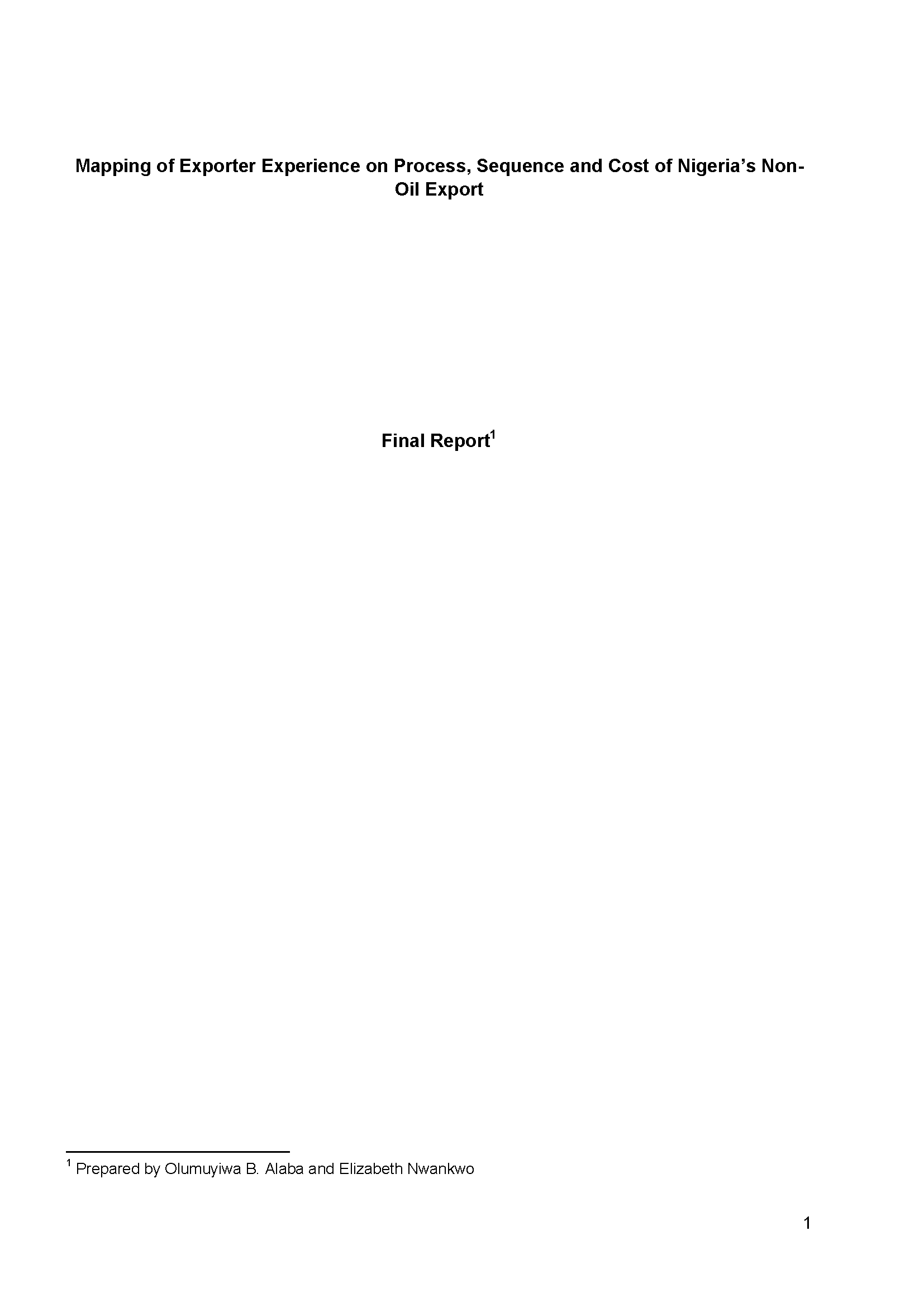This study focuses on the experiences of Micro, Small, and Medium Scale Enterprises (MSMEs) exporters in Nigeria. Reform of the business environment in general, and for MSMEs in particular, has been recognized as a key driver of economic diversification and inclusive growth. Nigeria has committed significant resources to enhance its positions on the global indicators of ease of doing business. The current administration emphasizes the creation of enabling business environment, particularly for non-oil trade through the MSMEs, as a crucial step towards inclusive economic prosperity. In achieving this objective, the government has created a dedicated council, Presidential Enabling Business Environment Council (PEBEC), to drive the reform process. It took a further decisive step by rolling out executive orders (EO) on business environment reform during the first half of 2017. Earlier in the year, the Government of Nigeria (GoN) ratified the WTO2 Trade Facilitation Agreement (TFA) which prescribes the removal of unnecessary bottlenecks to trade operations. The primary recommendations of the articles of the TFA are in two non-exclusive folds – transparency of trade procedures and simplification of trade regulations.

